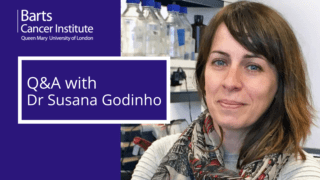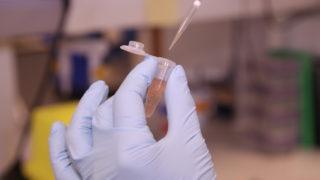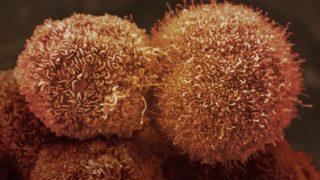Tag: Pancreas
Search News
Categories
Archives
Study identifies biomarker that could help to diagnose pancreatic cancer
29th June 2021
Researchers from Barts Cancer Institute, Queen Mary University of London, have identified a protein that could be used to aid in the diagnosis of pancreatic cancer. Findings from the new study suggest that a protein called pentraxin 3 may be a specific diagnostic biomarker – or biological measure – for pancreatic cancer, with the ability to differentiate pancreatic cancer from other non-cancerous conditions of the pancreas.
Read moreStudy to investigate how AI could aid early detection of pancreatic cancer
5th May 2021
Researchers from Barts Cancer Institute at Queen Mary University of London and Edge Hill University are set to investigate how artificial intelligence could be used to improve early diagnosis of pancreatic cancer.
Read moreCancer cell communications
12th March 2021
We spoke with Dr Susana Godinho, Group Leader in Barts Cancer Institute’s Centre for Cancer Cell and Molecular Biology, to find out about her recent paper published in Current Biology. Dr Godinho and her team set out to identify why cancer cells carrying extra centrosomes exhibit increased release of communications packages known as small extracellular vesicles.
Read moreResearchers develop virus-based treatment platform to fight pancreatic cancer
27th January 2021
Researchers from Barts Cancer Institute, Queen Mary University of London, and Zhengzhou University have developed a powerful therapeutic platform that uses a modified virus for the treatment of pancreatic cancer. By using the virus in combination with other drugs, the treatment significantly extended survival in preclinical models of pancreatic cancer.
Read moreCAR T cell therapy for pancreatic cancer
22nd January 2021
Researchers from Barts Cancer Institute, Queen Mary University of London, have identified a protein that may represent a novel therapeutic target for the treatment of pancreatic cancer. Using this protein as a target, the team successfully created a CAR T cell therapy – a type of immunotherapy – that killed pancreatic cancer cells in a pre-clinical model.
Read moreStudy receives prize for Research Excellence in Pathology
14th January 2021
Congratulations to Barts Cancer Institute’s Professor Hemant Kocher, who is co-lead author of the paper selected by The Journal of Pathology for the Jeremy Jass Prize for the calendar year 2019.
Read more




